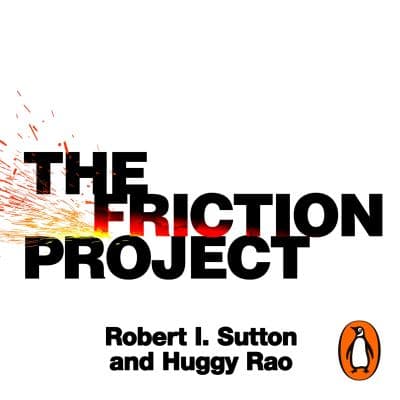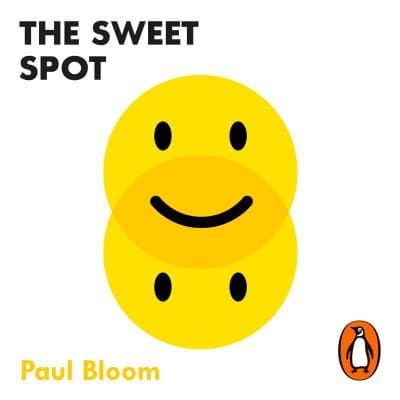Sean Patrick Hopkins
- Science - Biological
Read by: Sean Patrick Hopkins
Duration: 9 hrs 43 mins
What happens when we die? Ten per cent of people whose hearts stop, and then restart, report near-death experiences. Stories of lights, tunnels and reunion with late loved ones have been relayed - and dismissed - since ancient times. But when Dr Bruce Greyson's patients started describing events that he simply could not dismiss, he began to investigate.
In After, he shares the scientific revelations of four decades of research into the dying process. He has become increasingly convinced that dying is less an ending than a transition, the threshold between one form of consciousness and another. Dr Greyson challenges us to consider what these lessons can teach us about the relationship between our brain and our mind, expanding our understanding of consciousness and of what it means to be human. This audiobook includes three bonus interviews with the author. - Business and Management
Read by: Sean Patrick Hopkins
Duration: 8 hrs 44 mins
No organization is totally free from destructive friction; the forces that make it harder, more complicated and sometimes downright impossible to get things done. Drawing on years of research and featuring case studies on the likes of Uber, Netflix and Boeing, The Friction Project teaches readers how to become 'friction fixers'.
Stanford professors Sutton and Rao unpack how we should think and act like trustees of others' time. They provide friction forensics to help readers identify where to avert and repair bad friction, and where to maintain and inject good friction. Their help pyramid shows how friction fixers do their work, which ranges from reframing issues they can't fix in the short term, to ultimately redesigning and repairing organizations.
- Business and Management
Read by: Sean Patrick Hopkins
Duration: 19 hrs
Kissinger's six leaders are Konrad Adenauer, Charles de Gaulle, Richard Nixon, Anwar Sadat, Lee Kuan Yew, and Margaret Thatcher. All of them were formed in a period when established institutions collapsed all over Europe, colonial structures gave way to independent states in Asia and Africa, and a new international order had to be created from the vestiges of the old. Kissinger penetratingly analyses each of these leaders' careers through the highly individual strategies of statecraft which he presents them as embodying, to show how it is the combination of character and circumstance which creates history. Kissinger's public experience, personal knowledge and historical perceptions enrich the book with insights and judgements such as only he could make.
- Science - Technology
Read by: Sean Patrick Hopkins
Duration: 9 hrs 30 mins
In Like, Comment, Subscribe, Bloomberg tech journalist Mark Bergen delivers the definitive account on YouTube, detailing how it started, how it works and ultimately how it drives Google's success. It can be seen as the story of a technical marvel that has upended traditional media and created stars out of everyday people, or the story of the rise of a ruthless advertising conglomerate with little regard for its impact on the world beyond the bottom line - but in reality, it's the story of both.
- Economics Politics & Current Affairs
Read by: Sean Patrick Hopkins
Duration: 9 hrs
From Wall Street Journal columnist Spencer Jakab, the real story of the GameStop squeeze - and the surprising winners of a rigged game.
During one crazy week in January 2021, a motley crew of retail traders on Reddit's r/wallstreetbets forum had seemingly done the impossible - they had brought some of the biggest, richest players on Wall Street to their knees. Their weapon was GameStop, a failing retailer whose shares briefly became the most-traded security on the planet and the subject of intense media coverage.
The Revolution That Wasn't is the riveting story of how the meme stock squeeze unfolded, and the real architects (and winners) of the GameStop rally. Drawing on his years as a stock analyst at a major bank, Jakab exposes technological and financial innovations like Robinhood as ploys to part investors from their money, within the larger story of evolving social and economic pressures. The surprising truth? What appeared to be a watershed moment - a revolution that stripped the ultra-powerful hedge funds of their market influence, placing power back in the hands of everyday investors only increased the chances of the house winning.
Online brokerages love to talk about empowerment and 'democratising finance' - while Wall Street thrives on chaos. In this nuanced analysis, Jakab shines a light on the often-misunderstood profit motives and financial
mechanisms to show how this so-called revolution is, on balance, good for Wall Street. But, Jakab argues, there really is a way for ordinary investors to beat the pros: by refusing to play their game. - Psychology & Sociology
Read by: Sean Patrick Hopkins
Duration: 8 hrs
A good life involves more than just pleasure. Suffering is essential too.
It seems obvious that pleasure leads to happiness - and pain does the opposite. And yet we are irresistibly drawn to a host of experiences that truly hurt, from the exhilarating fear of horror movies or extreme sport, to the wrenching sadness of a song or novel, to the gruelling challenges of exercise, work, creativity and having a family.
In The Sweet Spot, pre-eminent psychologist Paul Bloom explores the pleasures of suffering and explains why the activities that provide most satisfaction are often the ones that involve greatest sacrifice. He argues that embracing this truth is the key to a life well lived.
Drawing on ground-breaking findings from psychology and brain science, he shows how the right kind of suffering sets the stage for enhanced pleasure, and how pain itself can serve a variety of valuable functions: to distract us from our anxieties or even express them, to help us transcend the self or project our identity, or as a gateway to the joys of mastery and flow.
As Bloom argues, deep down we all aspire to lives of meaning and significance, and that means some amount of struggle, anxiety and loss. After all, if the things that mean most to us were easy, what would be the point?
Endlessly fascinating and counter-intuitive, this deeply humane and enlightening enquiry is packed with unexpected insight into the human condition.
Revealing the surprising roots of lasting happiness, The Sweet Spot by pre-eminent psychologist Paul Bloom explains why suffering is an essential source of both pleasure and meaning in our lives. - History - General
Read by: Sean Patrick Hopkins
Duration: 12 hrs 30 mins
The bicycle is a vestige of the Victorian era, seemingly out of pace with our age of smartphones and ridesharing apps and driverless cars. Yet we live on a bicycle planet. Across the world, more people travel by bicycle than by any other form of transportation. Almost anyone can learn to ride a bike - and nearly everyone does.
In Two Wheels Good, writer and critic Jody Rosen reshapes our understanding of this ubiquitous machine, an ever-present force in humanity's life and dreamlife, and a flashpoint in culture wars for more for than two hundred years. Combining history, reportage, travelogue, and memoir, Rosen sweeps across centuries and around the globe, unfolding the bicycle's saga from its invention in 1817 to its present-day renaissance as a 'green machine,' an emblem of sustainability in a world afflicted by pandemic and climate change. Readers meet unforgettable characters: feminist rebels who steered bikes to the barricades in the 1890s, a prospector who pedaled across the frozen Yukon to join the Klondike gold rush, a Bhutanese king who races mountain bikes in the Himalayas, a cycle rickshaw driver who navigates the seething streets of the world's fastest-growing megacity, astronauts who ride a floating bicycle in zero gravity aboard the International Space Station.
Two Wheels Good examines the bicycle's past and peers into its future, challenging myths and cliches, while uncovering cycling's connection to colonial conquest and the gentrification of cities. But the book is also a love letter: a reflection on the sensual and spiritual pleasures of bike riding and an ode to an engineering marvel - a wondrous vehicle whose passenger is also its engine.
- Previous<
- Page1
- Next>






